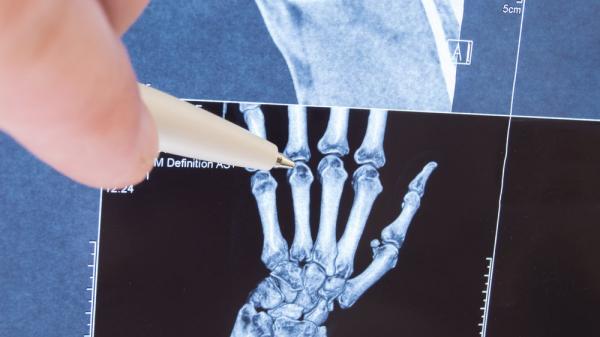
Many people with rheumatoid arthritis (RA) may experience trouble sleeping. With painful, stiff and sometimes swollen joints, you may find getting to sleep and staying asleep can be challenging at times.
You may think that disturbed sleep is an unfortunate side effect of RA pain. But the relationship between poor sleep and pain works both ways. Poor sleep can make your joint pain worse, and even increase the likelihood that you may become disabled or depressed.
For example, one study, published in 2009 in Arthritis Research & Therapy, found that sleep problems were associated with decreased pain thresholds in women with RA at numerous body sites when pressure was applied. The sites included both joints that are commonly affected by RA and non-joint sites that are not affected by the disease.
What Causes Sleep to Affect Pain
The big question is why does disrupted sleep affect pain?
The answer appears to be due to changes in the way the central nervous system (CNS) processes pain.
Research amongst women with RA suggests that the pathways in the CNS (the spinal cord and brain) that regulate (specifically reduce) pain may not work as well in people who have disrupted sleep, compared to healthy women without chronic pain.
Another theory is that sleep problems may lead to increased inflammation throughout the body. Studies in healthy people have found that sleep deprivation is associated with an increase in inflammatory markers measured in the blood. Given that RA is an inflammatory condition, you want to avoid things that could trigger further inflammation.
How You Can Sleep Better
Since pain, sleep and inflammation appear to be closely linked, treating insomnia, if present, is an important step to help manage your RA. A restful night’s sleep often starts with developing good sleep hygiene (or good habits to promote sleep), such as not taking electronic devices such as mobile phones or tablets to bed, avoiding caffeine in the evenings, and establishing a regular bedtime schedule. Learn more strategies that can help you sleep soundly.
It is natural when experiencing RA pain to focus on managing your pain and less on our overall health. However, a good night’s sleep is central to taking care of yourself so you can better cope with life and living well with RA.











